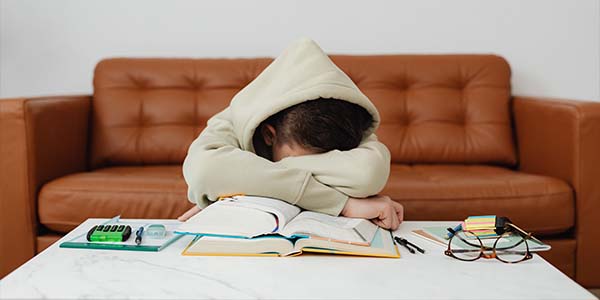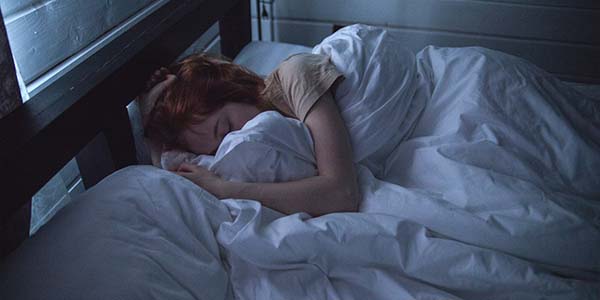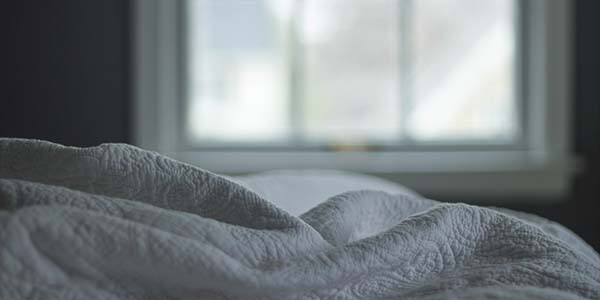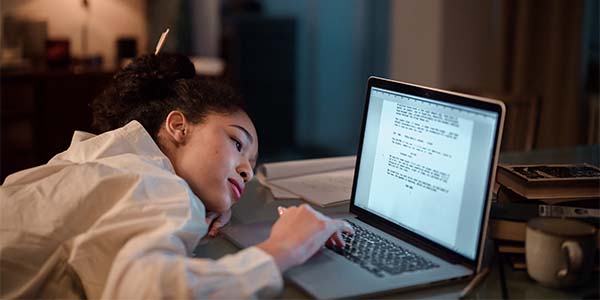[As seen in the Star Tribune] Sleep is a mystery. Sometimes it’s an easy, thoughtless process and other times it’s like trying to find a tiny piece of eggshell in a completely mixed cake batter.
I’ve often thought about the mystery of sleep while rocking and coaxing (sometimes pleading) my now 11-month old to sleep.
As an adult, it’s still a necessity and yet rarely a priority.
Whether it’s a result of overscheduling, emotional distress, a need to relax, or certain life stages (having young children for example), sleep is often sacrificed to create the extra space needed in our lives.
Shocking Sleep Statistics and Trends

Sleep Advisor compiled some shocking sleep statistics and trends for 2021 in which they noted that “In 1942, Americans had 7.9 hours on average per night compared to 6.8 hours in 2013, which is a 13% decrease.”
Equally shocking is the statistic they sited from the CDC in which “35% of adults don’t get enough sleep (7 hours per day.)” That’s one out of every three people that are not getting the recommended amount of sleep.
What could you do with an extra hour of sleep each night?
The Power of Sleep
While insufficient sleep can lead to a whole host of problems, good sleep can aid in “immune function, detoxification, and increased metabolism” to name a few.
If we understood the power of proper sleep, we might just be more motivated to prioritize it in our lives.

How Sleep Works
As cited by the Sleep Foundation, although decades of research have been dedicated to studying the intricacies of sleep, scientists still have much to learn. What we do know is that within minutes of falling asleep, things in your body and brain change. Basically, your brain and body power down, and you expend less energy.
There are also four different stages to sleep which include deep sleep and REM sleep (two of the most well-known stages.) Throughout a good night’s sleep, a person will move through these stages multiple times in what is called a sleep cycle.
Our hormones and chemicals play a vital role in our sleep regulation, and it goes without saying that sleep is important. However, all of this fun science barely matters to you if you’re struggling with sleep.
Healthy Sleep Tips
So what can you do about it? The Sleep Foundation created an extensive list of healthy sleep tips to help establish better “sleep hygiene” which include:
- Creating a Sleep-Inducing Bedroom
- Optimizing Your Sleep Schedule
- Crafting a Pre-Bed time Routine
- Fostering Pro-Sleep Habits During the Day
They provide specific tips under each of these categories to help you on the journey to better sleep.
Bypass the Afternoon Slump with Energy Sustaining Tips

One of the healthy sleep tips under “Fostering Pro-Sleep Habits During the Day” is to avoid caffeine in the afternoon. Are you tempted to caffeinate when you feel that afternoon slump hit? Before reaching for that second (or third, or fourth) cup of coffee in the afternoon, stop! It may be what’s impacting your sleep. Consider bypassing the afternoon slump with these healthier habits.
What is Blue Light and How to Protect Yourself

The technological age that we live in has brought even more challenges to sleep hygiene. They certainly weren’t dealing with the effects of blue light in 1942 when the average adult was getting an extra hour of sleep every night.
With screens seemingly everywhere we turn, how can we protect ourselves from blue light? Some of the many helpful tips from the article “What is Blue Light and How to Protect Yourself” include:
Take screen breaks. Follow the 20-20-20 rule. Every 20 minutes, look 20 feet away for 20 seconds
Start minimizing or eliminating your screen time in the 2-3 hours prior to bed time
Use light-blocking or room-darkening curtains or blinds
Is Over-scheduling Causing You Stress (and Inadequate Sleep?)

Stress can be detrimental to sleep and many families are victim to rampant over-scheduling. If you feel like your life is just too busy for you to prioritize getting adequate sleep, consider the helpful information in this article, “Is Over-scheduling causing you stress?,” which includes warning signs of overscheduling and what to do about it.
Conclusion
Sleep is good. Sleep is important. Sleep is a mystery.
If, after trying all the best tips and tricks, you’re still struggling with sleep, consider speaking with a counselor about it. Medi-Share members have unlimited access to virtual behavioral health counseling services at no additional cost. Seek support if you’re struggling. Schedule a 30-minute appointment today!






